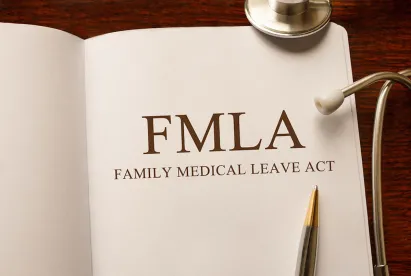In Buckmaster v. The National Railroad Passenger Corp. d/b/a Amtrak, the U.S. District Court for the District of Maryland addressed whether an employee had offered any evidence of discrimination or retaliation beyond his own speculative beliefs and personal disagreement with his employer’s legitimate business reason for terminating his employment. Finding no such evidence in the record, the court granted the employer’s motion for summary judgment on April 11, 2022, dismissing the employee’s claims of disability discrimination, interference under the Family and Medical Leave Act (FMLA), failure to accommodate a disability, and retaliation for requesting medical leave and reporting disability discrimination.
Background
While working for Amtrak as a substation electrician, Keith Buckmaster was in a car accident and suffered back, neck, and knee injuries. Due to lingering pain, Buckmaster requested and was reassigned to a less physically demanding role. Buckmaster worked in this new position until July 2015, when he applied for and secured a position as a senior technical trainer.
In March 2017, Buckmaster began exhibiting performance issues that continued to decline despite receiving a counseling letter. On May 16, 2017, Amtrak provided Buckmaster with a final warning, informing him that failure to improve could result in further disciplinary action, including the termination of his employment. On August 1, 2017, the director of training and development for the engineering department started an email chain to discuss Buckmaster’s work performance. In turn, Buckmaster’s direct supervisor documented several occasions on which Buckmaster had scheduled training classes without his supervisor’s approval, dismissed those classes early, or left work entirely without proper notification. On September 29, 2017, Buckmaster incorrectly informed a trainee class that a ten-foot ladder required fall protection, which confused Amtrak’s senior management and ultimately prompted the training and development director to initiate the process to terminate Buckmaster’s employment.
Buckmaster called out of work on Monday, October 2, 2017, and began a fifty-eight-day leave of absence. On October 17, 2017, Buckmaster filled out a request for FMLA leave retroactive to October 2, 2017. Buckmaster did not provide a specific medical reason for the request other than “short term disability.” The leave management team activated Buckmaster’s short-term disability package. Amtrak also sent Buckmaster an FMLA eligibility notice and “Certification of Health Care Provider” form to complete in connection with his request for FMLA leave. Buckmaster never had his healthcare provider complete the form, despite receiving several extensions. Thus, on November 30, 2017, Amtrak denied Buckmaster’s FMLA request for failure to provide the completed Certification of Health Care Provider form and terminated his employment the next day.
The Court’s Analysis
Although the court rejected Amtrak’s initial arguments that Buckmaster was not legally disabled under the Americans with Disabilities Act (ADA), it granted summary judgment on his disability discrimination claim, having determined that Buckmaster had not met his prima facie case. In particular, the court found that Buckmaster had not offered any evidence, “beyond his self-serving deposition and discovery responses,” that he was performing his job at a level that met Amtrak’s legitimate expectations or that could raise an inference of discrimination. The court stated that even if Buckmaster could offer such admissible evidence, the written counseling statement for tardiness and dishonesty and final written warning issued after Buckmaster failed to improve his performance provided undisputed evidence of Amtrak’s “nondiscriminatory reason for his discharge.”
The court noted that even if Buckmaster could establish a prima facie case, the undisputed evidence showed that his employment termination occurred after he failed to provide medical documentation to support his fifty-eight-day paid leave of absence. Furthermore, Amtrak’s email correspondence regarding Buckmaster’s performance deficiencies sufficiently refuted his unsubstantiated allegations that Amtrak’s reliance on his failure to provide the FMLA certification had been a pretext for discrimination.
The court held that Buckmaster could not sustain his FMLA interference claim because he failed to provide the required certification to support his request for FMLA leave, even after several extensions. As a result, Amtrak’s duty to provide FMLA leave was never triggered. The court also dismissed the failure-to-accommodate claim, having determined that Buckmaster had not offered evidence as to the reasonableness or necessity of the accommodations he requested. Likewise, the court dismissed his retaliation claims under the ADA and FMLA because Buckmaster failed to produce any evidence of a causal connection between his alleged protected activities and his employment termination, let alone show that Amtrak’s legitimate and nondiscriminatory reason for discharge (i.e., failing to provide the FMLA certification to support his absence) was pretextual.
Key Takeaways
Although the court granted summary judgment because the employee failed to meet his burden of proof, the Buckmaster decision highlights the importance of completing timely documentation that addresses employee performance issues, as such records offer a contemporaneous history of an employee’s improvement or failure to improve performance over time. The decision also underscores for employers the importance of warning employees of possible disciplinary action for failing to submit required paperwork in a timely manner when processing FMLA requests, including when providing extensions of time to submit the necessary certifications.




 />i
/>i
